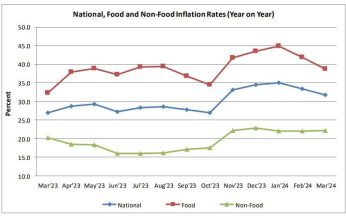RBM for increased financial literacy
 The Reserve Bank of Malawi (RBM) has vowed to scale up consumer awareness and consumer education activities in the country aimed at increasing financial literacy levels among Malawians.
The Reserve Bank of Malawi (RBM) has vowed to scale up consumer awareness and consumer education activities in the country aimed at increasing financial literacy levels among Malawians.
The bank’s principal examiner for consumer education and complaints handling unit Madalitso Chamba told business journalists in Lilongwe that the central bank is determined to help financial consumers understand their rights.
Financial literacy, according to RBM, means the understanding, knowledge, skills, values and attitudes that people have about financial institutions and the services and products that they offer.
“That is why we have established the consumer education and complaints handling unit which has been mandated to coordinate all financial consumer education and consumer protection activities,” said Chamba.
Analysts contend that financial literacy is an important tool for financial stability of a country and economic development.
Results of a survey conducted by the World Bank in 2008 revealed that less than 20 percent of Malawians have access to financial services and products.
It is generally argued that one of the factors causing such a limited access to financial services is lack of necessary financial information by consumers and the public.
Chamba explained that most Malawians, especially the less privileged, are not knowledgeable about financial services and products being offered by financial institutions such as insurers.
Financial literate consumers, according to Chamba, can make more informed decisions and demand higher quality services, which he said encourage competition and innovation in the financial market.
He, however, urged consumers to lodge complaints at the bank’s consumer education and complaints handling unit which, he said, will assist in consumer protection and hold service providers accountable.
But he said examples of the nature of complaints that RBM has received and handled include loss of dividends and investment shares due to lack of procedural knowledge.
“There is an increasing wide range of financial products and services on the financial market. People with a higher level of financial literacy are in a better position to manage their money, participate in the stock market, perform better on their portfolio and they are more likely to choose investment managers or brokers with low fees.”
According to Chamba, research shows that higher levels of financial literacy are directly related, not only to asset building, but also to debt and debt management.





